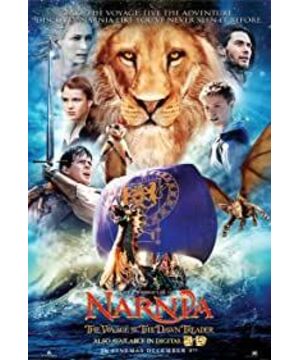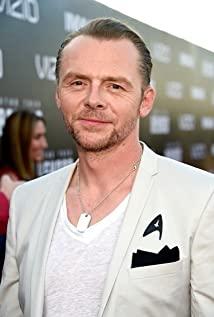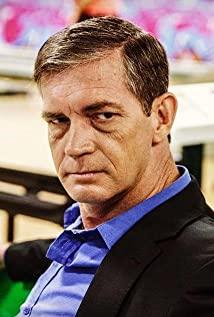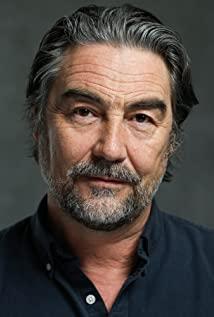"The Chronicles of Narnia" series has released three films so far, although in the second film, it was rumored that Disney, the old owner, wanted to cut the fantasy series in half due to the unsatisfactory box office. News, but in any case, either due to the east wind of 3D technology, or rekindled hopes of a box office hit, the series finally survived. However, my country's radio and television department never seems to be sensitive to such topics (after all, fairy tales, it is always good to develop imagination), so Chinese people can continue this fantasy journey.
The film is adapted from the series of the same name with the "Lord of the Rings" series, which is also known as the British fantasy novel double-walled. The movie series launched by Disney in recent years has obviously once again pushed the fantasy world of "Narnia" to the forefront of the current mass audio-visual consumption. According to the author's viewing in theaters (including the first two films), this is obviously a series of "family fun" films, and it is suitable for all ages to become the killer at the box office. However, after carefully scrutinizing the narrative path of the film, we suddenly found that there seems to be an embarrassment or persistence in the film, that is, it frequently wanders between fairy tales and myths.
The problem that does not seem to be difficult to identify and identify is that fairy tales are mainly relative to the audience, and myths are mainly focused on their content. But it seems that some sage said that a problem that is not a problem is always a big problem. The first "The Lion, the Witch and the Wardrobe" in "The Chronicles of Narnia", the second "Prince Caspian", and the third "The Voyage of the Dawn Treader" are full of metaphors, giving people the feeling of wanting to say Still rest, hesitant to speak. What is a metaphor? That is to say, you don't understand either, and if you don't mention the sub-paths that you may still understand, you understand. It's not that Xin Jiaxuan writes long and short sentences. Why should a fairy tale fall out of the book bag like this? Here are two features that have always existed in the Chronicles of Narnia film series: violent warfare and Aslan the Lion. War is not only the background of the real world in several series involving the issue of "travel": world war, but also the inevitable plot unfolding in every adventure story in the fantasy world, that is, brewing contradictions - wars - winning, such The narrative mode has been tried and tested, and it even makes people feel that the author is a little paranoid. And the lion has obviously become a sacred symbol. In "The Voyage of the Dawn Treader" he also declared to Lucy: "In your world, I have another name." Who? Archangel? Saint Peter? Suddenly I remembered that the Buddha, who seemed to be more mysterious, once said: "You can't say it, you can't say it." It seems that Lewis has won the samadhi. After all, Lewis himself is a well-known British Christian theological writer and preacher, and he has done a good job of promoting the teachings. The dimension closely related to religion is mythological thinking. According to Levi Strausch's interpretation of mythology, this innate symbiotic relationship comes not only from the way primitive humans perceive the world, but also from the self-sanctification of religious believers needs. The latter one is more important, that is, I want to promote it, but I can't make it too clear, because distance can produce beauty. In this sense, vulgarity is vulgarity, because distance produces beauty. The "Narnia Series" with this purpose is obviously unrestrained and self-disciplined everywhere. Even if I want to tell you, you can't understand it. So this is the way of mythology, not the way of fairy tales. Because fairy tales are obviously meant to be understood by children, the grand monkeys on Huaguo Mountain called out clearly, decisively and briefly every time: "Children! We want..." Crack! But this is obviously too popular and not enough distance, so although the monkey is excellent in martial arts, it can never surpass the monk Tang who is chanting the spell. It's not a level after all!
In addition, Lucy, Peter, Susan, Edmund and others are ordinary or even mediocre in the real world, but when they arrived in Narnia, they all rose to the sky overnight, and they all turned into serfs and became nobles! In addition to the male emperor, is the female emperor. This kind of aristocratic thinking is also an important core of mythology and religion, because religion has always had a dualistic distinction, that is, the theoretical level of doctrine and the interaction level of believers' practice. "There shall be no other gods but me." This kind of exclusivity is quite authoritative in Christian doctrine, and behind the authority is actually rank and distinction. Although the bourgeoisie based on the need for capital accumulation and the understanding of Christians created the human rights declaration that "all men are created equal", at the practical level, the idolatry of God has been copied and become a form of religious and secular interaction. Therefore, since the Middle Ages, the hierarchy of clergy is no less than that of today's official ranks and high-efficiency titles, and the ranks are self-ordered. Therefore, the people of Narnia are all subjects, the governance of Narnia is more strict and tidy, and the etiquette of Narnia has returned to the period of slave society (according to the social evolution of the old Marx). Order, not chaos, not even freedom, seems to be the hidden chapter of the so-called noble code of magic in the land of Narnia. Where is this normal fairy tale?
But The Chronicles of Narnia still has the main character of a fairy tale. As far as the Chinese and foreign fairy tales that the author has been involved in (except for Mr. Zheng Yuanjie in China, it seems that Mr. Yang Hongying has been gaining momentum in the book industry recently. Of course, there are also a large number of folk stories, with clear paths, propagating good and suppressing evil), fairy tales have a considerable Important proposition: that is growth. Although growing up has always been troublesome, but to show readers the mental journey of the green years, to see the freckles on the faces of Lucy, Susan and others that can't fade for a long time, these are the right way to tell fairy tales. This also explains why the protagonists of Narnia never seem to be handsome enough, but they are youthful and even youthful. That's why there is a big BOSS who was born in the ending chapter of the novel "The Chronicles of Narnia: The Last Station", but it makes sense: the emergence of the "time giant", because only time can obliterate youth, as the so-called "time" It's getting old", and this is the topic. In addition, the "The Chronicles of Narnia" series is actually a fantasy version of "War and Peace". Peace is always born in war and achieved in the smoke of gunpowder. The author Lewis carried a gun and participated in the First World War, and was once injured , these experiences naturally influenced the author's creative position. From the author's point of view, war seems to be inevitable, which is why wars in the Chronicles of Narnia series come so violently and frequently. However, the hope of peace is never out of date, so the end of every war is a glorious victory. This peace in violence instead reflects Lewis' true religious feelings, because of his compassion.
In general, "The Chronicles of Narnia" is obviously the result of the game between myth and fairy tales, a half-blood, I hope everyone still likes it!
View more about The Chronicles of Narnia: The Voyage of the Dawn Treader reviews











